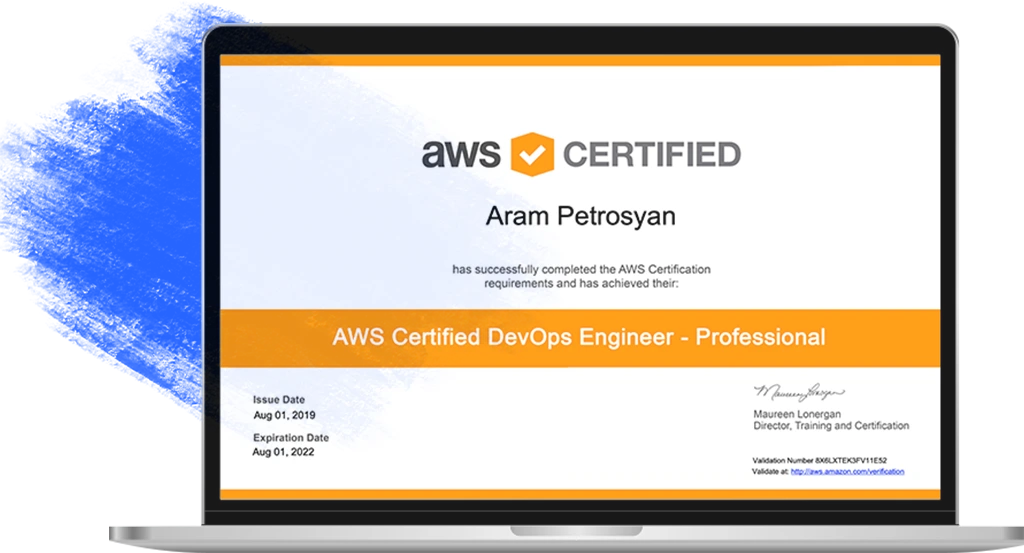What are the best DevOps courses?
There are several excellent DevOps courses available online, covering a range of topics from basic concepts to advanced practices. The “best” DevOps course for you depends on your current knowledge level, learning preferences, and the specific skills you want to acquire. Here are some popular DevOps courses offered by reputable platforms:
Coursera: “Google Cloud Platform Fundamentals: Core Infrastructure”
Provider: Google Cloud on Coursera
Description: This course covers the fundamentals of Google Cloud Platform (GCP) and is relevant for those interested in DevOps practices on cloud infrastructure.
Udacity: “DevOps Engineering Nanodegree”
Provider: Udacity
Description: This nanodegree program provides hands-on experience with industry-standard tools and practices for DevOps, including Jenkins, Docker, Kubernetes, and more.
edX: “Introduction to DevOps: Transforming and Improving Operations”
Provider: Microsoft on edX
Description: This course, part of the Microsoft Professional Program in DevOps, introduces key DevOps concepts and practices using Microsoft Azure DevOps.
LinkedIn Learning: “Learning DevOps”
Provider: LinkedIn Learning
Description: This learning path on LinkedIn Learning covers various DevOps topics, including continuous integration, continuous delivery, containerization, and infrastructure as code.
Pluralsight: “DevOps Foundations”
Provider: Pluralsight
Description: This course provides a foundational understanding of DevOps principles and practices, covering topics such as collaboration, automation, and feedback.
AWS Training and Certification: “AWS Certified DevOps Engineer – Professional”
Provider: AWS Training and Certification
Description: This certification training from Amazon Web Services (AWS) is designed for individuals with experience in DevOps and focuses on AWS-specific practices.
Docker: “Docker Mastery: with Kubernetes +Swarm from a Docker Captain”
Provider: Udemy
Description: This Udemy course, taught by a Docker Captain, covers Docker and Kubernetes, exploring containerization and orchestration.
Jenkins Certified Engineer (JCE): Official Exam Preparation Course
Provider: CloudBees on Linux Foundation Training
Description: This course prepares you for the Jenkins Certified Engineer (JCE) exam, covering Jenkins best practices and advanced topics.
Red Hat: “Red Hat Certified Engineer (RHCE) – EX294 Exam Prep”
Provider: Red Hat on edX
Description: This course is designed to help you prepare for the Red Hat Certified Engineer (RHCE) exam on DevOps automation using Ansible.
Google Cloud Training: “Architecting with Google Kubernetes Engine”
Provider: Google Cloud Training
Description: This course focuses on using Kubernetes Engine for container orchestration on Google Cloud Platform.
GitHub Learning Lab: Various DevOps Courses
Provider: GitHub
Description: GitHub Learning Lab offers a collection of interactive DevOps courses covering topics like GitHub Actions, CI/CD, and more.
Before choosing a DevOps course in Chandigarh, consider your specific learning goals, whether you prefer hands-on labs or theoretical concepts, and whether you want to focus on specific tools or take a more holistic approach to DevOps practices. Additionally, check reviews, testimonials, and the course content to ensure it aligns with your expectations.
What is the role of cloud in DevOps?
Cloud computing plays a pivotal role in enabling and enhancing DevOps practices. DevOps is a set of practices that emphasizes collaboration, communication, and integration between development (Dev) and operations (Ops) teams. The cloud provides a flexible and scalable infrastructure that aligns with key DevOps principles and supports the implementation of continuous integration, continuous delivery, and other DevOps practices. Here’s how the cloud contributes to DevOps:
Scalability
Cloud Benefit: Cloud platforms, such as Amazon Web Services (AWS), Microsoft Azure, and Google Cloud Platform (GCP), offer scalable resources on-demand.
DevOps Impact: DevOps teams can easily scale infrastructure up or down based on workload demands. This flexibility is crucial for handling varying workloads in development, testing, and production environments.
Infrastructure as Code (IaC)
Cloud Benefit: Cloud providers allow users to define and provision infrastructure using code, a concept known as Infrastructure as Code (IaC).
DevOps Impact: IaC enables version-controlled and repeatable infrastructure deployments. DevOps teams can automate the provisioning of environments, reducing manual errors and ensuring consistency.
Automation
Cloud Benefit: Cloud platforms provide a wide array of services and APIs that support automation.
DevOps Impact: DevOps relies heavily on automation to streamline processes. Cloud-based automation tools, like AWS CloudFormation, Azure Resource Manager (ARM) templates, and Google Cloud Deployment Manager, help automate infrastructure provisioning and configuration.
Continuous Integration and Continuous Delivery (CI/CD)
Cloud Benefit: Cloud services offer integrated tools and services that facilitate CI/CD workflows.
DevOps Impact: DevOps teams leverage cloud-native CI/CD tools to automate the building, testing, and deployment of applications. This accelerates the development lifecycle, promotes collaboration, and ensures faster delivery of software.
Collaboration and Communication
Cloud Benefit: Cloud platforms provide collaborative tools, communication channels, and shared repositories.
DevOps Impact: Effective communication and collaboration are essential in DevOps. Cloud-based collaboration tools, version control systems (e.g., Git repositories on GitHub, Bitbucket), and integrations with CI/CD pipelines enable seamless cooperation between development and operations teams.
Read more about how x*x*x is equal to 2 and get aware of it.
Monitoring and Logging
Cloud Benefit: Cloud providers offer monitoring and logging services for tracking system performance and analyzing logs.
DevOps Impact: DevOps relies on continuous monitoring and feedback. Cloud-based monitoring tools (e.g., AWS CloudWatch, Azure Monitor) help identify issues, track performance, and provide valuable insights for continuous improvement.
Environment Isolation
Cloud Benefit: Cloud platforms enable the creation of isolated environments and resources.
DevOps Impact: DevOps practices often involve creating isolated environments for development, testing, and staging. Cloud-based environments can be provisioned and decommissioned dynamically, reducing resource contention and conflicts.
Security and Compliance
Cloud Benefit: Cloud providers invest heavily in security and compliance measures.
DevOps Impact: DevOps teams leverage cloud security features to ensure that applications and infrastructure meet compliance standards. Cloud services offer identity and access management, encryption, and other security features.
Cost Optimization
Cloud Benefit: Cloud platforms provide flexible pricing models and cost management tools.
DevOps Impact: DevOps teams can optimize costs by dynamically provisioning resources based on demand, shutting down unused resources, and using reserved instances. Cloud cost management tools help track and control expenses.
The cloud’s agility, automation capabilities, and vast array of services align closely with the goals of DevOps training in Chandigarh, making it an integral part of modern software development and delivery practices.
Read more article:- Techtimez










